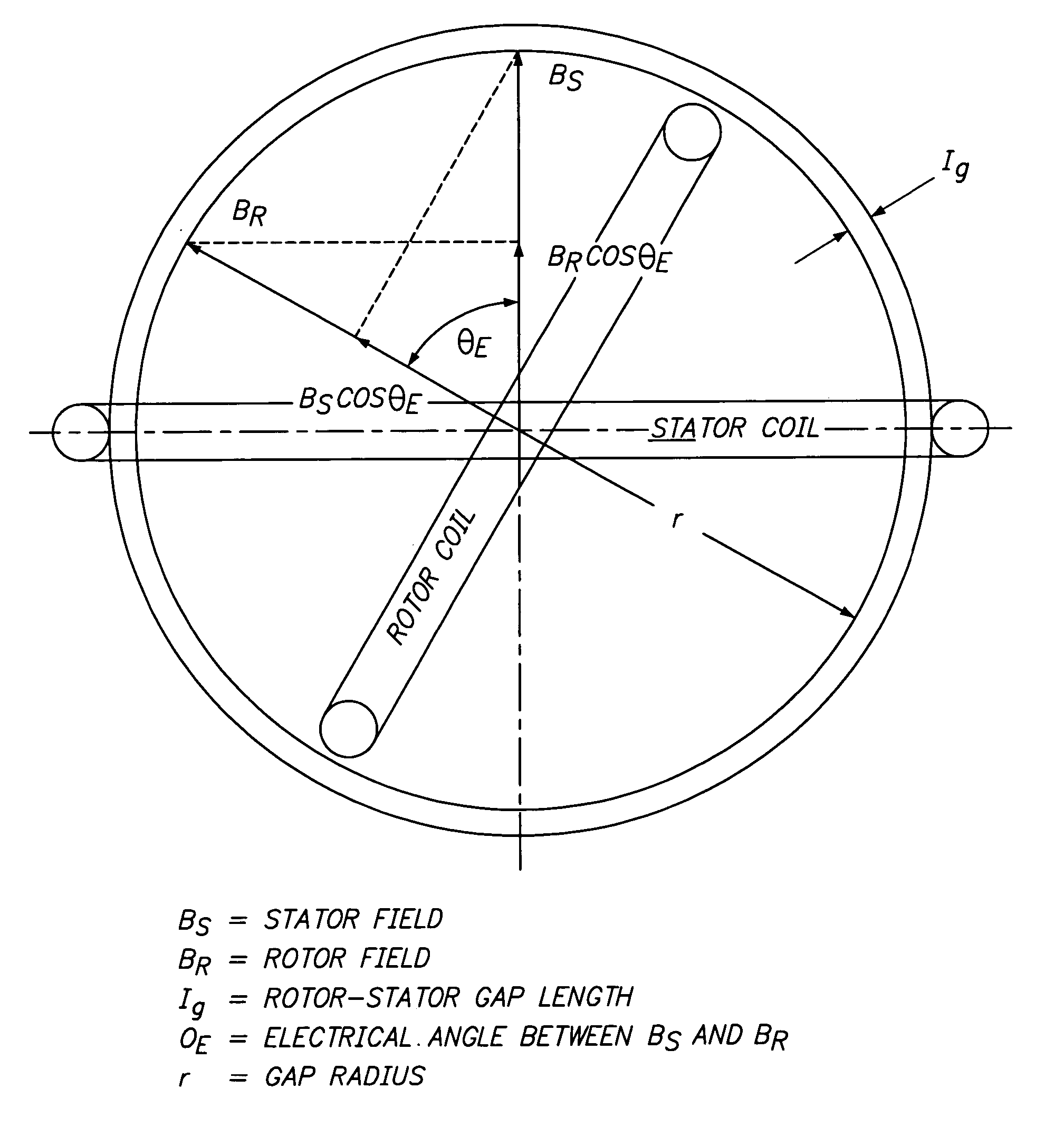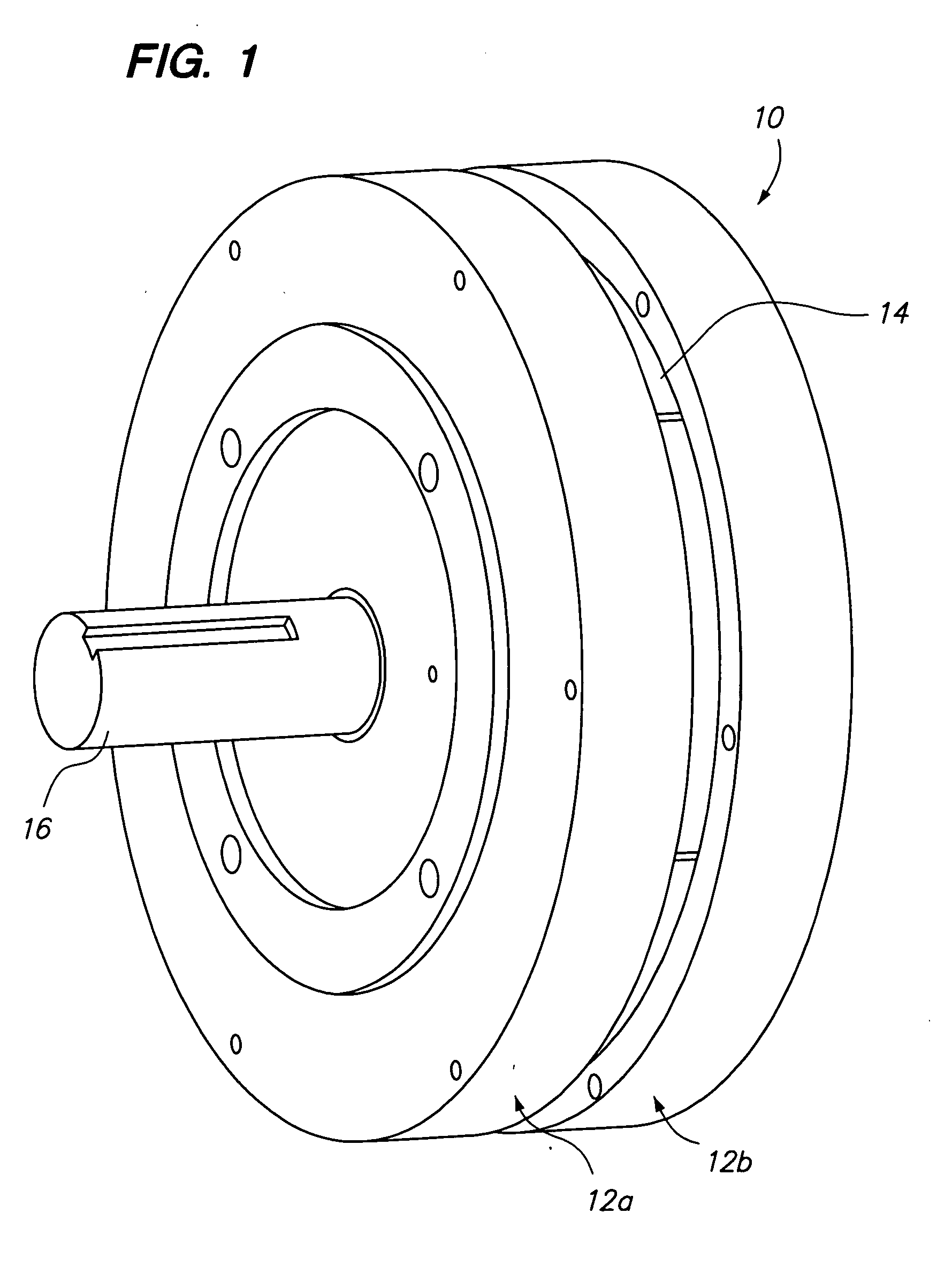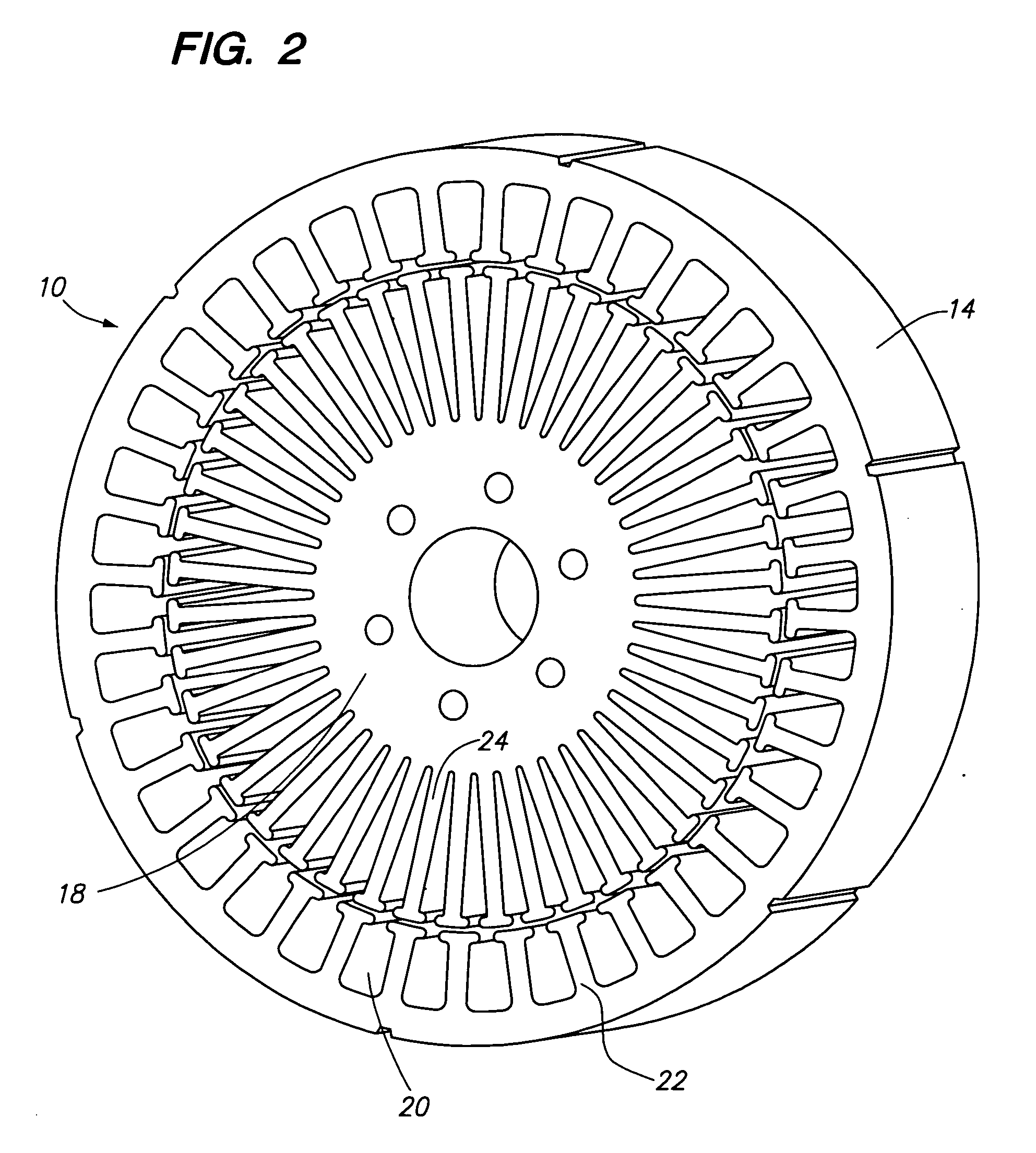AC induction motor having multiple poles and increased stator/rotor gap
a technology of induction motor and stator, which is applied in the direction of windings, dynamo-electric components, and magnetic circuit shapes/forms/constructions, etc., can solve the problems of increasing torque, increase the magnetic resistance of the circuit, increase the torque, increase the motor torque
- Summary
- Abstract
- Description
- Claims
- Application Information
AI Technical Summary
Benefits of technology
Problems solved by technology
Method used
Image
Examples
Embodiment Construction
[0024] Referring now to the drawings wherein the showings are for purposes of illustrating preferred embodiments of the present invention only, and not for purposes of limiting the same, FIG. 1 is a perspective view of a multiple-pole, flat form factor motor 10. The motor 10 has two circular end bells 12a, 12b supporting a circular stator core 14. As will be further explained below, the stator core 14 is formed from a metallic material such as iron and contains multiple teeth surrounded by wire windings. A shaft 16 extends from the motor 10 and is attached to a rotor 18, as seen in FIG. 2. The rotor 18 is generally circular and is sized to be inserted within the stator core 14. The rotor 18 has multiple teeth 24 disposed around the circumference thereof. Each of the teeth 24 is surrounded by a wire winding. Similarly, the stator core 14 has multiple winding slots 20 and teeth 22 disposed around an interior circumference. Each of the stator teeth 22 is surrounded by a wire winding. I...
PUM
 Login to View More
Login to View More Abstract
Description
Claims
Application Information
 Login to View More
Login to View More - R&D
- Intellectual Property
- Life Sciences
- Materials
- Tech Scout
- Unparalleled Data Quality
- Higher Quality Content
- 60% Fewer Hallucinations
Browse by: Latest US Patents, China's latest patents, Technical Efficacy Thesaurus, Application Domain, Technology Topic, Popular Technical Reports.
© 2025 PatSnap. All rights reserved.Legal|Privacy policy|Modern Slavery Act Transparency Statement|Sitemap|About US| Contact US: help@patsnap.com



